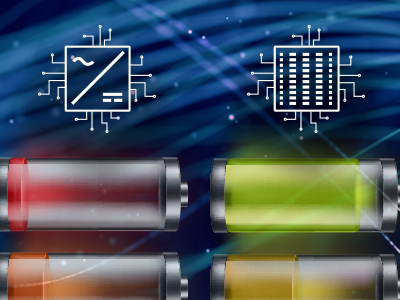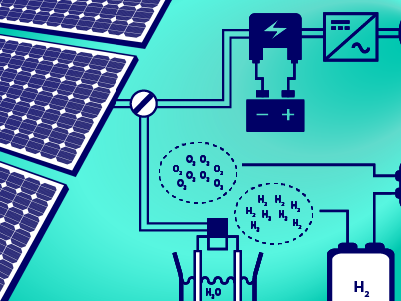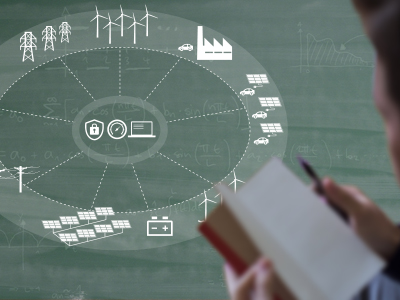Overview
Discover the fundamentals of modern battery technology and various types of batteries and their chemistries. Learn about sustainable practices, safety systems, and diagnostics for optimizing battery performance.
This course takes you deep into the world of batteries, a critical field driving the transition to renewable energy and sustainable mobility. This course offers an overview of battery systems, from their chemical operating principles and design to their manufacture and use.
You will begin by exploring the urgency and challenges for storing electricity in batteries, and their importance in modern energy systems. You will be introduced to the principle behind a battery through an experiment with a salt battery.
The course then covers various battery technologies, including lead-acid, lithium-ion, sodium-ion, redox flow and multivalent-ion batteries, with a focus on their chemistry, design, functionality, and sustainability.
Also, the course will dive deeper into the fabrication and processing of batteries with an emphasis on circular economy principles, green manufacturing, and innovations like artificial intelligence and machine learning in battery management systems. Safety issues and eco-design considerations will also be highlighted.
You will also study the chemical reactions and kinetics within batteries and learn how to analyze their performance through testing methods. Non-electrochemical diagnostic tools will also be discussed to help you understand the aging processes of battery materials and examine ways to extend their lifespan.
By the end of the course, you will have a solid understanding of the theory and application of battery systems, equipping you with the knowledge to contribute to innovation in energy storage technologies.
This course is essential for engineers, students and other technical or non-technical professionals aiming to stay at the forefront of the energy transition, empowering them make informed decisions in research, industry and policy making.
What You'll Learn
- Understand the principles and challenges of the storage of electricity in batteries.
- Compare different battery technologies, including lead-acid, redox flow, Li-ion, Na-ion, and multivalent-ion systems.
- Explore sustainable battery fabrication and green processing methods.
- Analyze the role of artificial intelligence and machine learning in battery management systems.
- Evaluate chemical reactions, kinetics, and performance testing of batteries.
- Diagnose aging processes in battery materials using non-electrochemical tools.
Details
Course Syllabus
Module 1
In this module we will explain the working principles behind a battery, and discuss the urgency and challenges related to electricity storage in batteries.
Module 2
Several battery technologies are shown: lead-acid, Li-ion, Na-ion, multivalent-ion batteries and flow batteries. The various battery systems will be highlighted also in relation to circularity.
Module 3
In this module we cover battery fabrication and processing in relation to circularity and green processing (ECO-design). We also give attention to artificial intelligence and machine learning in battery research, and safety issues such as a battery management system (BMS).
Module 4
In this module we consider the theoretical background of chemical reactions and kinetics. Battery test systems will be explained with regard to their use in analysing the performance of a battery, including charge-discharge analysis, cyclic voltammetry and electrical impedance spectroscopy.
Module 5
In the last content module we discuss a number of non-electrochemical diagnostic tools, particularly to understand the aging of battery materials in the battery. We will cover X-ray diffraction, neutron diffraction, scanning electron microscopy, transmission electron microscopy, atomic force microscopy, UV-VIS spectroscopy, X-ray absorption spectroscopy, Mossbauer spectroscopy, and positron annihilation.
Qualifications
Chartered Engineering Competences
All our online courses and programs have been matched to the competences determined by KIVI’s Competence Structure, a common frame of reference for everyone, across all disciplines, levels and roles.
These competences apply to this course:
- A1: Extend your theoretical knowledge of new and advancing technologies.
- B3: Manage implementation of design solutions, and evaluate their effectiveness.
- E3: Undertake engineering activities in a way that contributes to sustainable development and a circular economy.
Admission
This is a Massive Open Online Course (MOOC) that runs on edX.
Prerequisites
Basic understanding of high school-level physics and chemistry is required. No prior knowledge of batteries or advanced technical skills are required.


